Examining the Root Causes of Migration at the Local Level
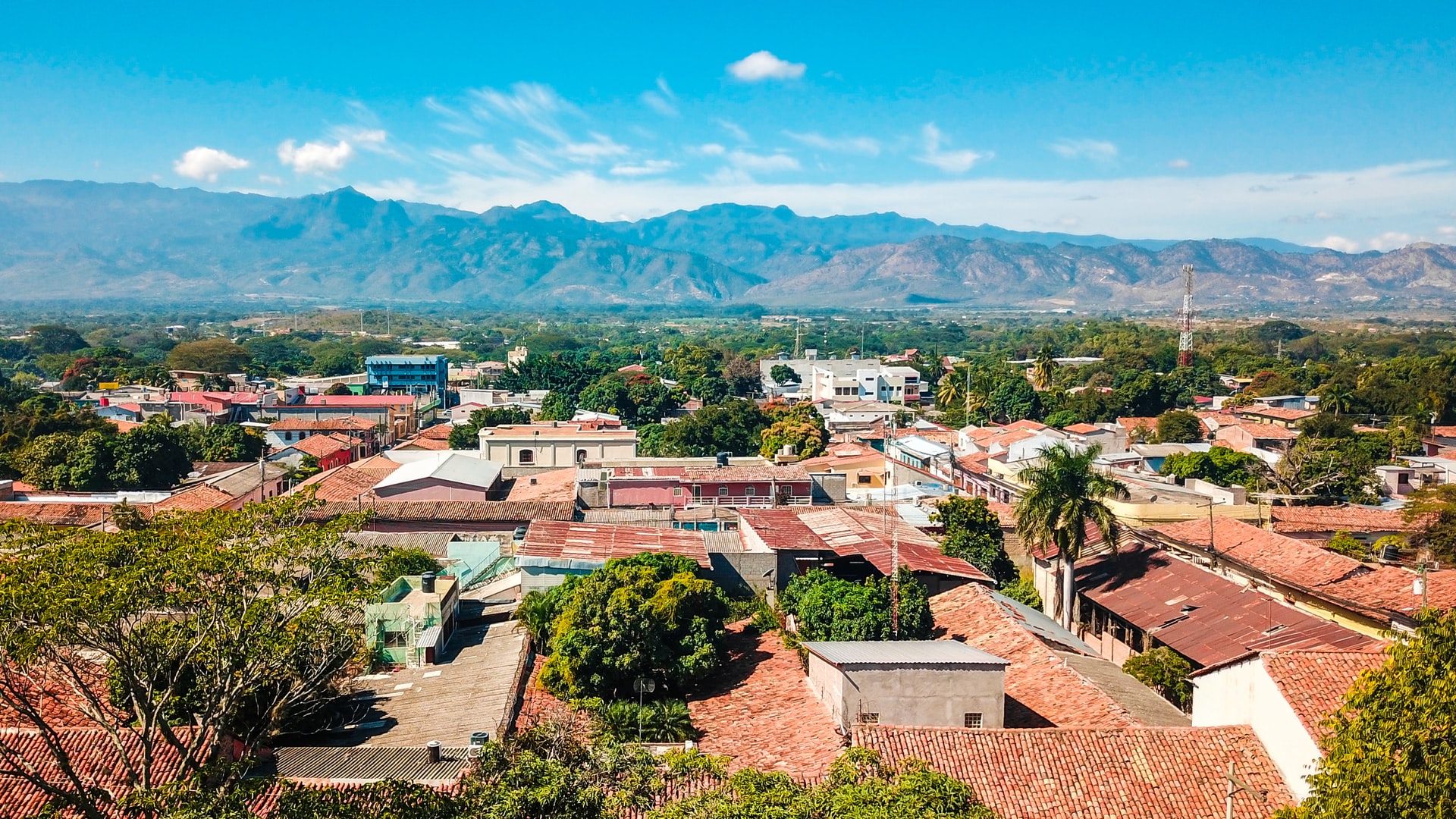
The Challenge
Poor governance and lack of responsiveness to citizens’ needs hinders rootedness and drives irregular migration in Honduras. As we seek to address the challenge of irregular migration in Honduras and elsewhere, actionable localized data on migration and governance-related drivers – like perceptions of corruption, crime, government effectiveness, and access to services – are critical for informing tailored interventions that increase government responsiveness and foster hope.
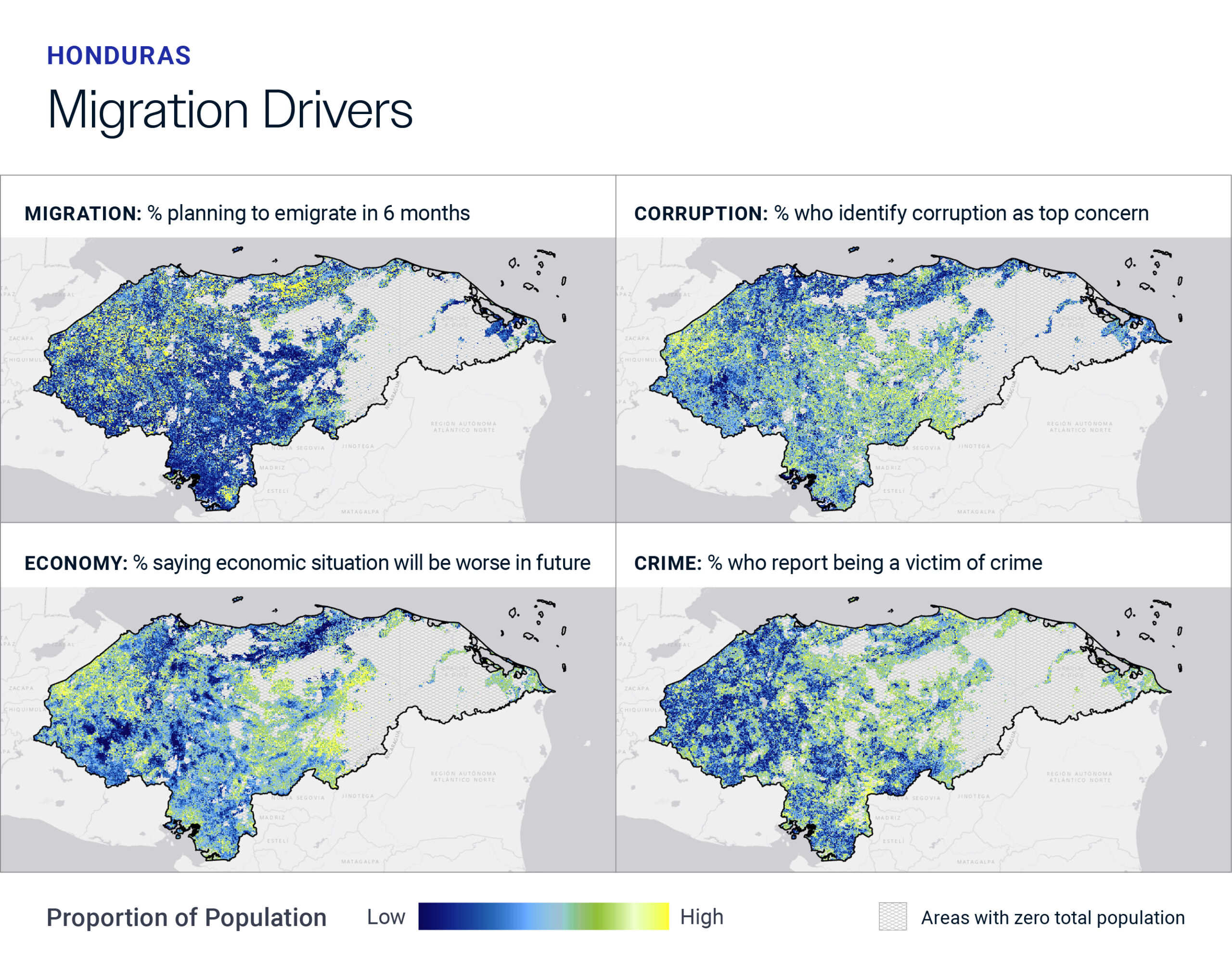
The Solution
Unlike traditional population data, Fraym data identifies migration trends at the community level allowing program designers to tailor efforts for specific communities rather than broad regions. For example, 16 percent of Hondurans report a high probability that they will emigrate in the following 6 months.1 However, Fraym data identifies municipalities with much higher rates of intention to migrate – up to 30 percent.
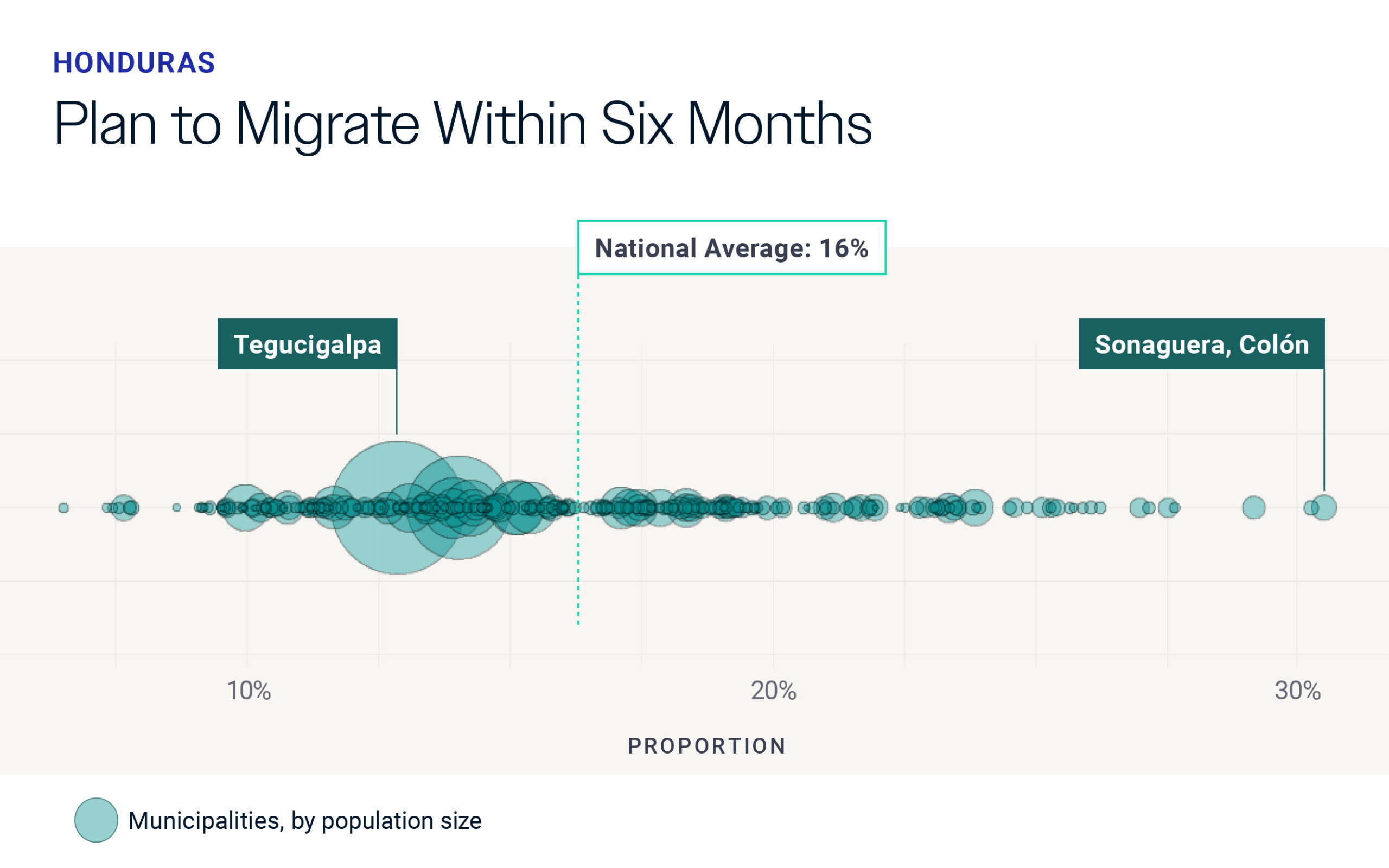
Data in Practice
USAID’s Honduras Country Development Coordination Strategy (CDCS) applies a geographic approach to countering drivers of irregular migration, identifying five regional Migration Clusters in Honduras.2 Program designers can use Fraym data to identify the key migration drivers within each of these Migration Clusters and zoom in at the community level for precise spatial understanding of drivers. For example, Fraym data shows that nearly 1 in 4 people in the North Coast cluster, the area with the highest desire to migrate, are a victim of a crime. In the Western Honduras cluster, while people experience less crime, 43 percent identify corruption as their household’s top concern. Equipped with this information, we now have a clearer picture of what types of programming are likely to target rootedness by community.
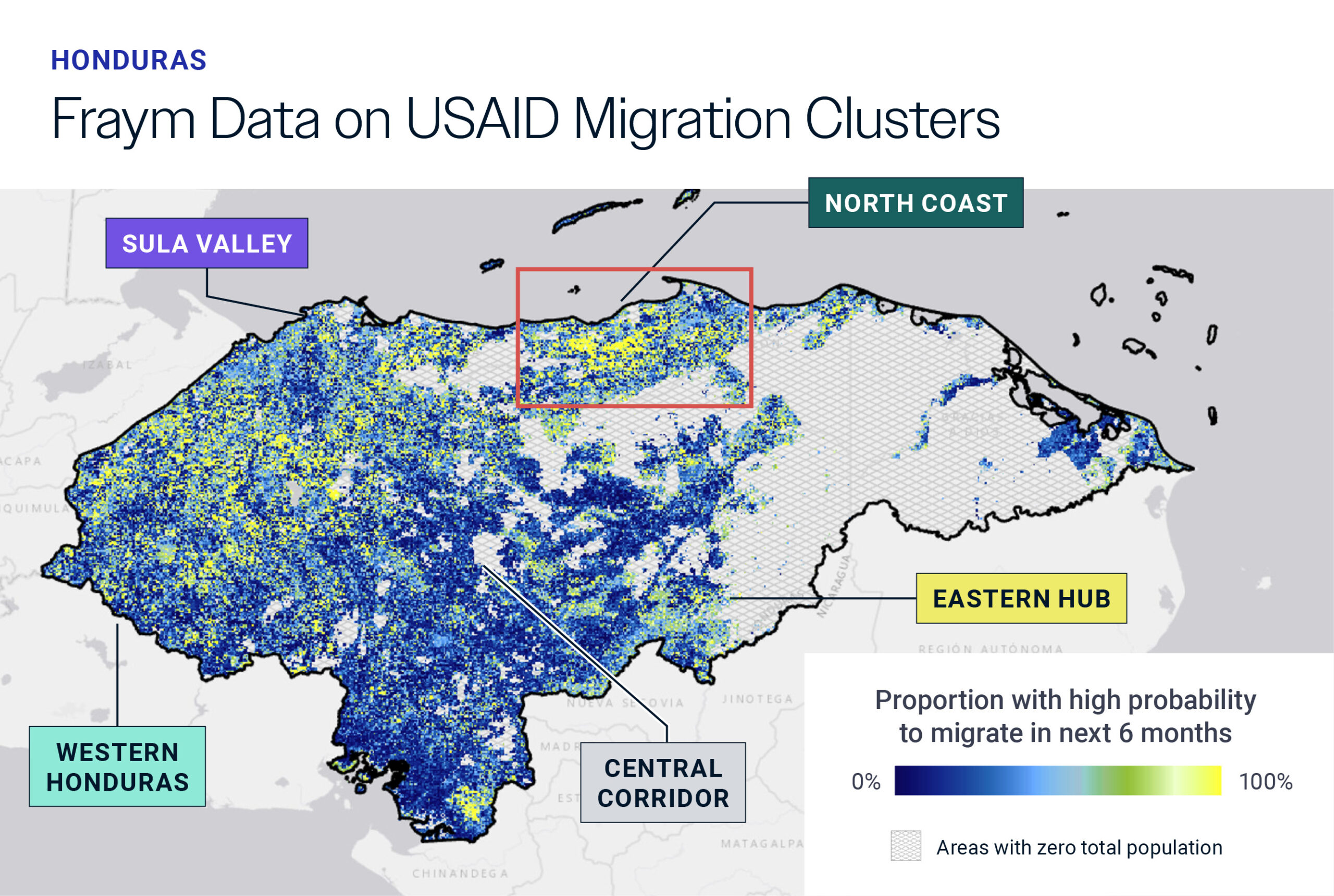
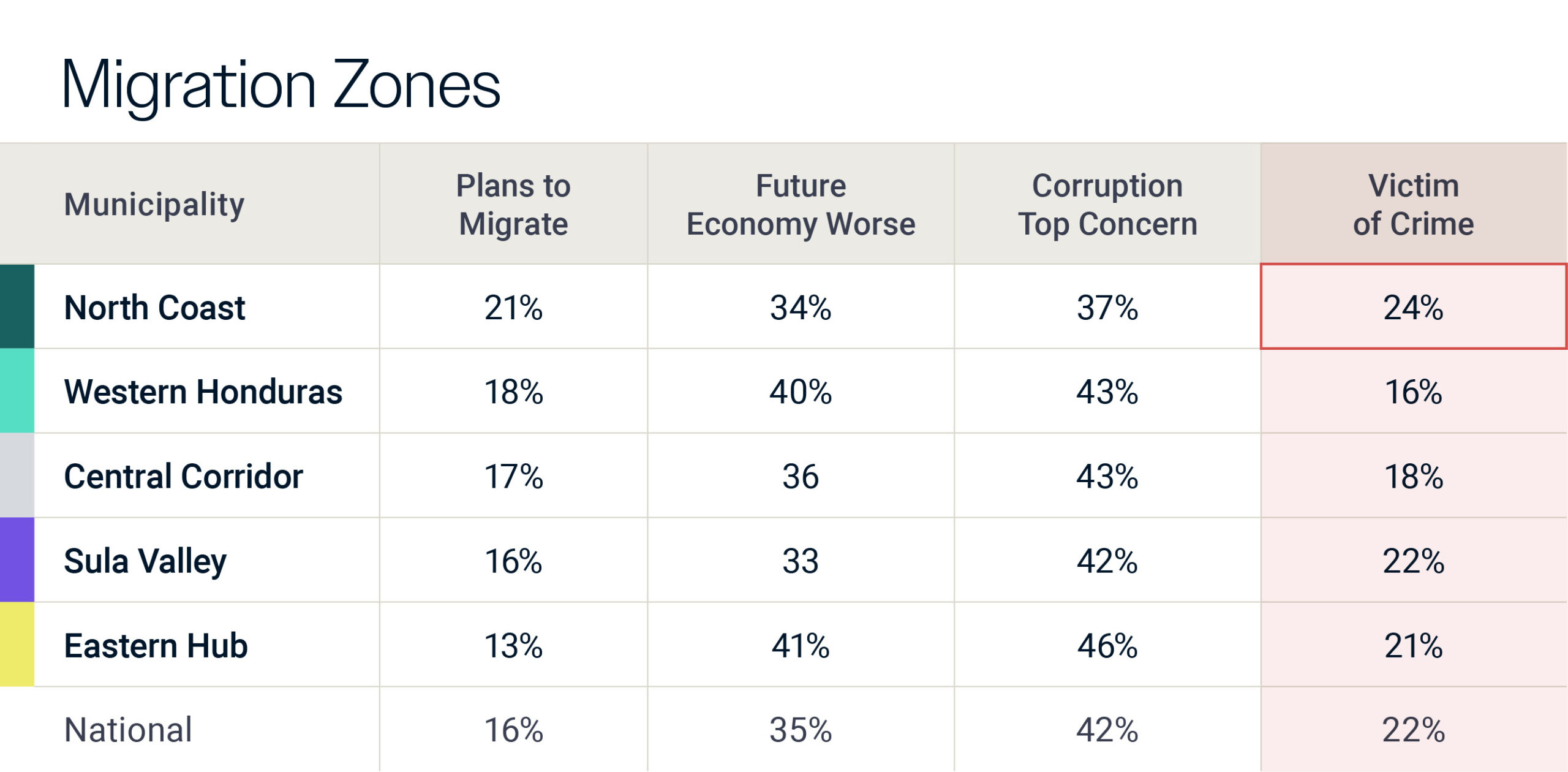
Conclusion
Increasing rootedness in Honduras requires programming that is tailored to communities’ unique needs and reflective of on-the-ground realities. Fraym’s data provides actionable community-level insight into migration drivers – empowering you to design and implement interventions that more effectively increase government responsiveness, improve quality of life, and foster people’s hope for their future in Honduras.